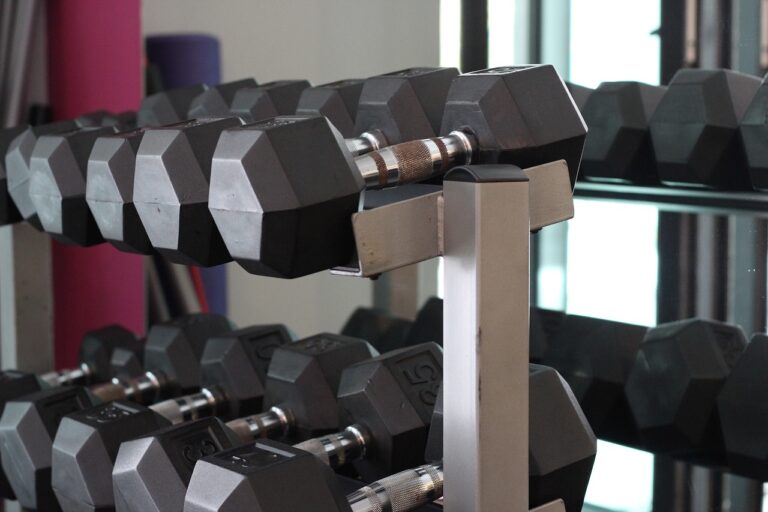Occupational Hazards: Protecting Your Lungs at Work: Allexchbet, 99exch, All panel.com
allexchbet, 99exch, all panel.com: Occupational Hazards: Protecting Your Lungs at Work
Working in certain industries can expose you to a variety of occupational hazards that can greatly impact your health, especially your lungs. From dust and fumes to toxic chemicals and allergens, there are numerous things in the workplace that can pose a risk to your respiratory system. In this article, we’ll discuss some common occupational hazards that can affect your lungs and provide tips on how you can protect yourself while on the job.
Dust and Particulate Matter
One of the most common occupational hazards that can affect your lungs is exposure to dust and particulate matter. Whether you work in construction, agriculture, or manufacturing, you may be exposed to particles in the air that can be inhaled and cause respiratory issues. Dust and particulate matter can irritate your lungs, leading to coughing, wheezing, and even more serious conditions such as asthma or chronic obstructive pulmonary disease (COPD).
To protect your lungs from dust and particulate matter, make sure to wear a mask or respirator that is appropriate for the type of particles you are exposed to. Additionally, employers should have proper ventilation systems in place to minimize the amount of dust in the air.
Chemical Fumes
Another common occupational hazard that can affect your lungs is exposure to chemical fumes. If you work in a laboratory, a manufacturing plant, or any industry where chemicals are used, you may be at risk of inhaling harmful fumes that can damage your respiratory system. Chemical fumes can irritate your lungs and airways, leading to coughing, shortness of breath, and other respiratory symptoms.
To protect yourself from chemical fumes, make sure to use all necessary personal protective equipment, such as gloves, goggles, and a respirator. Be sure to follow all safety guidelines and protocols when working with chemicals, and always work in a well-ventilated area.
Allergens
If you work in an environment where allergens are present, such as a hospital, a school, or a pet grooming salon, you may be at risk of developing respiratory issues due to exposure to allergens. Allergens such as pollen, mold, pet dander, and dust mites can trigger allergic reactions and exacerbate conditions such as asthma or allergies.
To protect your lungs from allergens, make sure to keep your work area clean and free of dust and other allergens. If you have allergies, be sure to take any necessary medications and follow your doctor’s recommendations for managing your condition while at work.
Smoking
Smoking is a well-known risk factor for lung disease, but did you know that exposure to secondhand smoke in the workplace can also pose a risk to your lungs? If you work in an environment where smoking is allowed, you may be breathing in harmful chemicals and toxins that can damage your respiratory system over time.
If you are a smoker, consider quitting to protect your lungs and overall health. If you work in a smoke-friendly environment, talk to your employer about creating a smoke-free workplace policy to protect the health of all employees.
Asbestos
Asbestos is a naturally occurring mineral that was once widely used in construction and manufacturing due to its heat resistance and durability. However, exposure to asbestos fibers can cause serious lung conditions such as asbestosis, lung cancer, and mesothelioma. If you work in an older building or in an industry where asbestos is present, you may be at risk of inhaling asbestos fibers.
To protect yourself from asbestos exposure, make sure to follow all safety guidelines and protocols when working with or around asbestos-containing materials. If you suspect that asbestos may be present in your workplace, alert your employer and request an inspection to determine the level of risk.
FAQs
1. How can I tell if my workplace is putting my lungs at risk?
Pay attention to any respiratory symptoms you may be experiencing, such as coughing, wheezing, shortness of breath, or chest tightness. If you notice that your symptoms improve when you are away from work, it may be a sign that your workplace is impacting your lung health.
2. What should I do if I think I have been exposed to a harmful substance at work?
If you suspect that you have been exposed to a harmful substance at work, notify your employer and seek medical attention as soon as possible. Your employer should investigate the situation and take steps to address any hazards in the workplace.
3. Are there any regulations in place to protect workers from occupational hazards?
Yes, there are regulations set by organizations such as OSHA (Occupational Safety and Health Administration) that require employers to provide a safe and healthy work environment for their employees. Employers are required to assess workplace hazards, provide appropriate training and personal protective equipment, and follow safety guidelines to protect workers from occupational hazards.
4. What can I do to protect my lungs at work?
In addition to wearing appropriate personal protective equipment, such as masks and respirators, make sure to follow all safety guidelines and protocols in your workplace. If you have concerns about the air quality or potential hazards at work, don’t hesitate to speak up and advocate for your health and safety.
5. Can I file a workers’ compensation claim for lung-related illnesses caused by my job?
If you develop a lung-related illness or injury as a result of your job, you may be eligible to file a workers’ compensation claim. It’s important to document your symptoms, seek medical attention, and notify your employer as soon as possible if you believe your illness is work-related.
In conclusion, protecting your lungs at work is crucial for maintaining your overall health and well-being. By being aware of common occupational hazards, taking steps to minimize your exposure, and advocating for a safe work environment, you can reduce your risk of developing lung-related illnesses and enjoy a healthier work life. Remember, your health is your most valuable asset, so don’t hesitate to take the necessary precautions to protect it.







